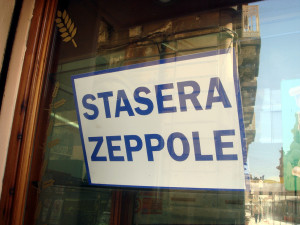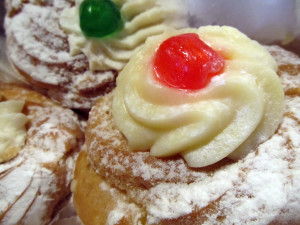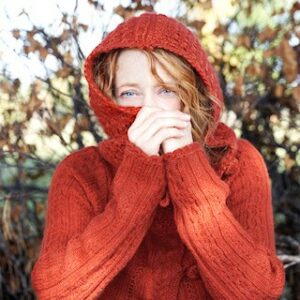
It’s Midlent: The Fourth Sunday of Lent, and halfway through our Lenten journey we get a Sunday whose color is rose, the color of joy, rather than penitent purple. A little break, a small reprieve, in celebration of being midway through. The day is called Laetare Sunday, a name derived from the first few words of the Mass for this day, in Latin: It is Isaiah 66:10: Laetare Jerusalem (“Rejoice, O Jerusalem”). It’s the day when folks in the United Kingdom honor their mothers: Mothering Sunday, they call it. And this year, Laetare Sunday happens to fall on St. Joseph’s Day. San Giuseppe, sacred to Italy, where today is Father’s Day, in honor of the saint who was foster father to Jesus.
I apologize for not writing more this past week, when we honored St. Patrick, of course, and one day before that, St. Urho, whom the Finns know as the saint who drove the grasshoppers out of Finland. Either St. Urho has not gotten as much publicity as Patrick, or he is completely fictional: we’ll leave that up to you. Of St. Joseph, though, we can be certain, and we can be certain, too, that it is a day to find a good Italian bakery and some zeppole to enjoy with your after-dinner espresso tonight. We Italians consume zeppole in great quantities on this day, and there is nothing quite like being in an Italian bakery on this feast day and witnessing the rolling racks filled with zeppole: delicately light pastries filled with custard and garnished with cherries, or their lesser known cousins, sfinci, the same delicate pastry filled not with custard but with sweet ricotta, like cannoli. These things make us swoon this one day each spring. We are a dramatic, operatic people and the Festa di San Giuseppe is one of our annual highlights (and surprise: it revolves around food).
And by Monday it will be spring by the almanac: Balance comes to this old earth Monday, March 20, at 5:24 PM Eastern. Day and night roughly equal from North Pole to South, for just a short time, and then our Northern Hemisphere days grow longer than our nights as we make our way toward the Midsummer Solstice of June. The constant rearrange, so subtle we barely perceive it until we sit back and ponder it in the blocks of time we call seasons. These things will never cease to amaze me.
It was last summer that we were going to have our annual Wayzgoose at the Jaffe Center for Book Arts –– an online video event featuring the fabulous letterpress printer Jennifer Farrell of Starshaped Press in Chicago with music by singer/songwriter and recording artist Patty Larkin and me as host –– but Patty Larkin suffered a terrible accident before we could film the Wayzgoose last summer. It was obvious to me that we had to wait for Patty to recover. “No Patty Larkin, no Wayzgoose.” She had a long road ahead of her, but she did it. Patty’s been touring again, and earlier this winter, she recorded her Wayzgoose concert for us. In the meantime, I recorded my interview with Jen Farrell, and still these past few weeks I’ve been filming and editing, and the last edits will be coming at a more furious pace these next few days, all so we can have the Wayzgoose ready for its March 25 World Premiere. Won’t you join us? You can watch from anywhere in the world, and if you join us at 7 Eastern on Saturday, you’ll be part of a worldwide wave of viewers celebrating good print and good music. Click here to learn more and to watch on Saturday at 7. (The premiere takes place at the Jaffe Center’s website.)

I have a suggestion for your Saturday viewing party: Fix yourself and for those watching with you a steaming plate of waffles. I’ll explain why at the Wayzgoose. The Wayzgoose traditionally falls on Bartlemas, St. Bartholomew’s Day –– a very quirky day in the Round of the Year if ever there was one. And when it came to rescheduling this Wayzgoose, I chose the 25th of March for similar reasons. Trust me: make the waffles, serve them with maple syrup or with ice cream, then sit down with us at 7 on Saturday evening to watch. You’ll love the work of Jennifer Farrell and Patty Larkin’s concert will have you beaming… and you will appreciate the waffle connexion.
So many good wishes for you this day and this coming week!
John
COME SEE US! Find us on Saturday April 1 at JOHAN’S JOE in Downtown West Palm Beach from 7 AM to 3 PM for a little Springtime Market that Johan’s Joe and Convivio Bookworks are hosting together. We had a Christmas Market last December and it was so much fun and we met so many wonderful people, we’ve decided to collaborate again for Easter. We’ll have all our handcrafted goods for spring and Easter there from Germany, Sweden, and Ukraine.
SAVE ONLINE! At our online catalog, save $10 off your purchase of $85 or more, plus get free domestic shipping, too, when you use discount code BUNNY at checkout. It’s our Zippin’ Into Springtime Sale, good on everything in the shop, now through Easter (and probably a bit beyond, too). CLICK HERE to shop! And don’t forget to use discount code BUNNY at checkout if your order is $85 or more.

Images: Zeppole and sfinci, above. The zeppole are more popular; the sfinci at this bakery are identified by green candied cherries. Top: “Stasera Zeppole” translates to “Tonight Zeppole.” The photograph of a baker’s storefront window was taken by Giovanni Dall’Orto in Syracuse, Sicily.






